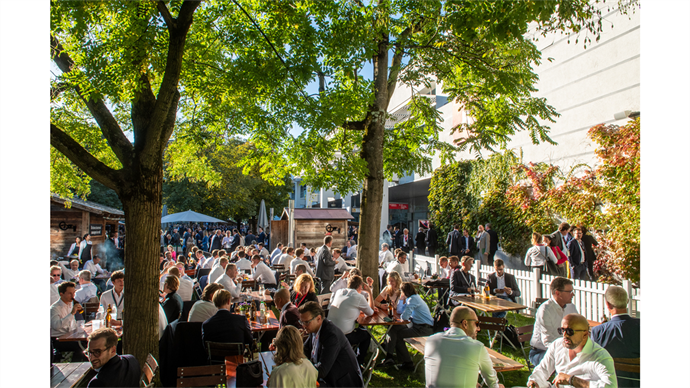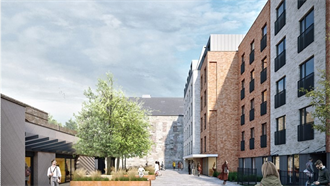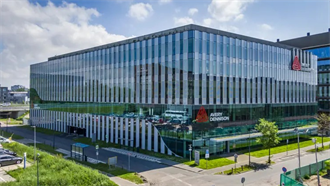The overriding message from this year’s Expo Real was that the market has turned the corner and is poised to enter a new cycle.
The only way is up - that was the ubiquitous message to come out of this year’s Expo Real in Munich. The real estate sector may have been through a difficult couple of years, with rising interest rates scuppering investment strategies for many businesses, but the feeling is very much that the worst is now firmly in the rear view mirror.
‘Those of our clients who have room in their portfolio for real estate are becoming active again,’ Paul Gibson, chief investment officer, EMEA direct real estate strategies, at CBRE Investment Management, told PropertyEU. ‘There are reasons to feel pretty optimistic about returns going forward.’
Gibson added that real estate was displaying ‘fair value’ compared to other asset classes, with ‘green shoots’ appearing. ‘The cautious optimism we were hoping for earlier in the year is starting to come through,’ he said. ‘It won’t be an instantaneous return to the markets of four years ago. There is always a bit more talk than there is action. But certain parts of the market are displaying significant strength and liquidity.’
Commerz Real CEO Henning Koch agreed, noting there were ‘signs of optimism’ at this year’s Expo Real, based on ‘more transaction activity, and larger deals across all sectors’. He said that a range of capital sources were ‘coming back to the table, including family offices, open-ended funds, and classic institutional money’, which he said was a good sign for the industry’s future. ‘We are at the beginning of a new cycle,’ he said.
Market hits bottom
The consensus is that prices have bottomed out, which should lead to a marked increase in transaction volumes. ‘Pricing has reached bottom and is starting to rebound, which is another positive sign,’ commented Philip La Pierre, head of Europe and co-CIO Europe at LaSalle IM.
‘In certain asset classes, restricted supply and constant demand are creating a positive income story. Combining these factors – accretive financing, bottoming-out pricing, and a positive income outlook – it's understandable why optimism is growing.’
Jorge Duarte, fund manager at Hines, also noted that owners are now more realistic about the value of their assets. ‘Potentially, we've hit the bottom,’ he said. ‘There will be more and more allocations to real estate and I have certainly been having a lot more discussions with investors over the last two quarters than we did last year. That points in the right direction.’
‘The mood is much better,’ he added. ‘Obviously contributing to that is inflation coming down and interest rates coming down. Everyone is feeling very positive about economic prospects. Transactions are already following.’
The situation, Duarte said, is helped by the fact that, unlike previous downturns, occupier demand remained robust over the last two years. ‘In Europe, at least, we find that the supply/demand fundamentals are much stronger than they should have been considering that we had a downturn,’ he said.
‘You would normally associate a downturn like this with rents coming down quite significantly as a result of vacancy going up. But we haven't had that. We’ve continued to have a relatively robust occupier market. We don't, at this point in the cycle, have the excess stock that needs to be absorbed.’
ESG concerns
Of course, not all the talk at Expo Real related to the state of the market. With the threat of climate change forever lurking in the background, many attendees were keen to talk about the progress their companies are making towards becoming carbon-neutral. Natali Cooper, Europe head of portfolio, asset management and ESG at developer GLP, for instance, talked to PropertyEU about the efforts she and her colleagues are making when it comes to embedded carbon.
She observed that until recently, the focus in the real estate industry had been on minimising operational carbon emissions, but that this ignored the fact that 70% of emissions in most buildings are associated with construction. ‘Embodied carbon was always put to the side and not really seen as a critical element,’ she said. ‘But as a developer, of course, it's critical. 70% is a huge number and considering how much we are building and developing it's a really critical path.’
In short, this year’s Expo Real was an exercise in accepting inconvenient truths. Real estate owners have accepted that their assets are no longer worth what they were a few years ago. And they also know that they will only depreciate further if they are not made substantially more environmentally friendly. With those realities accepted, delegates left Munich hoping that better days lie ahead.

































